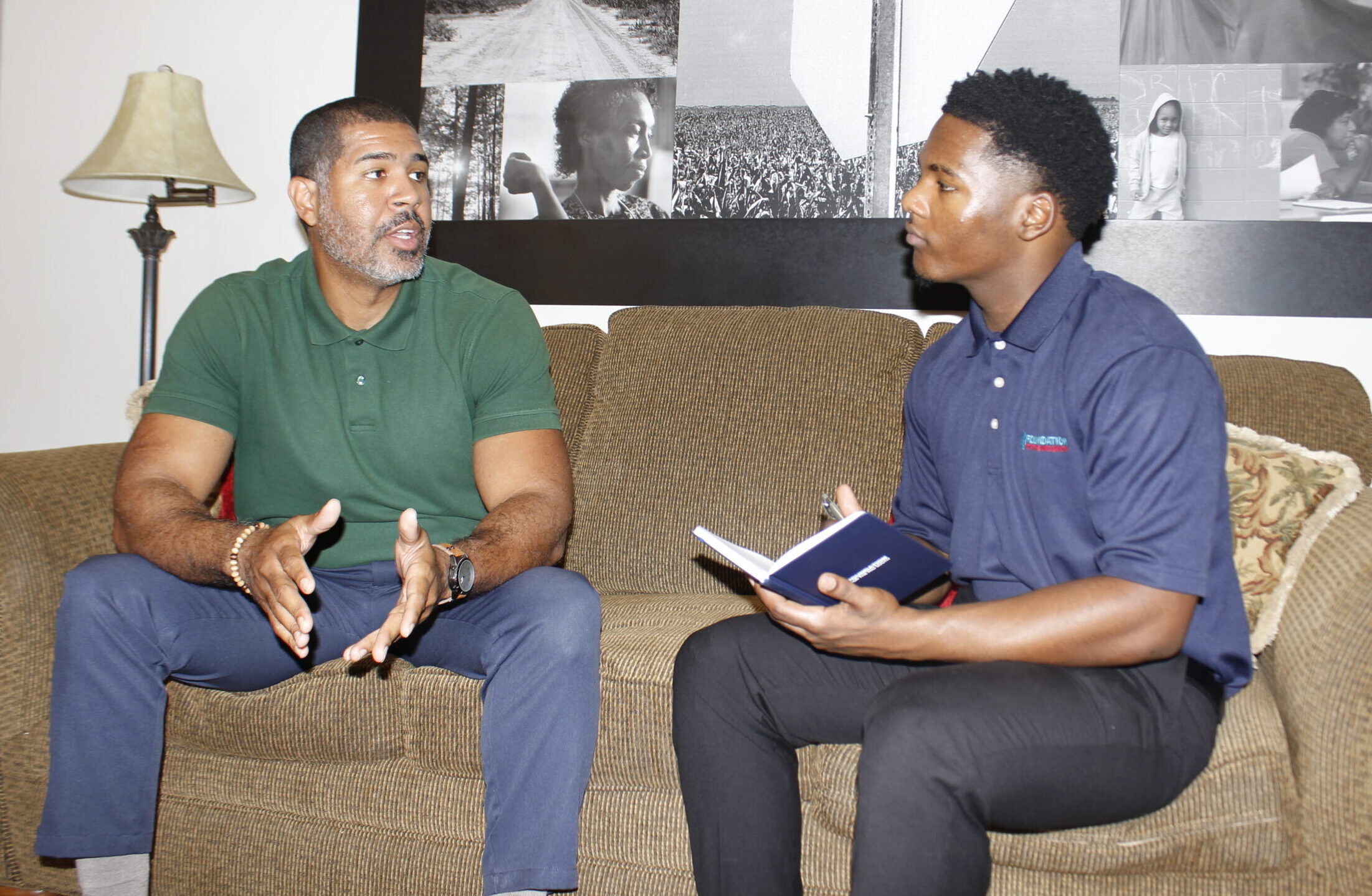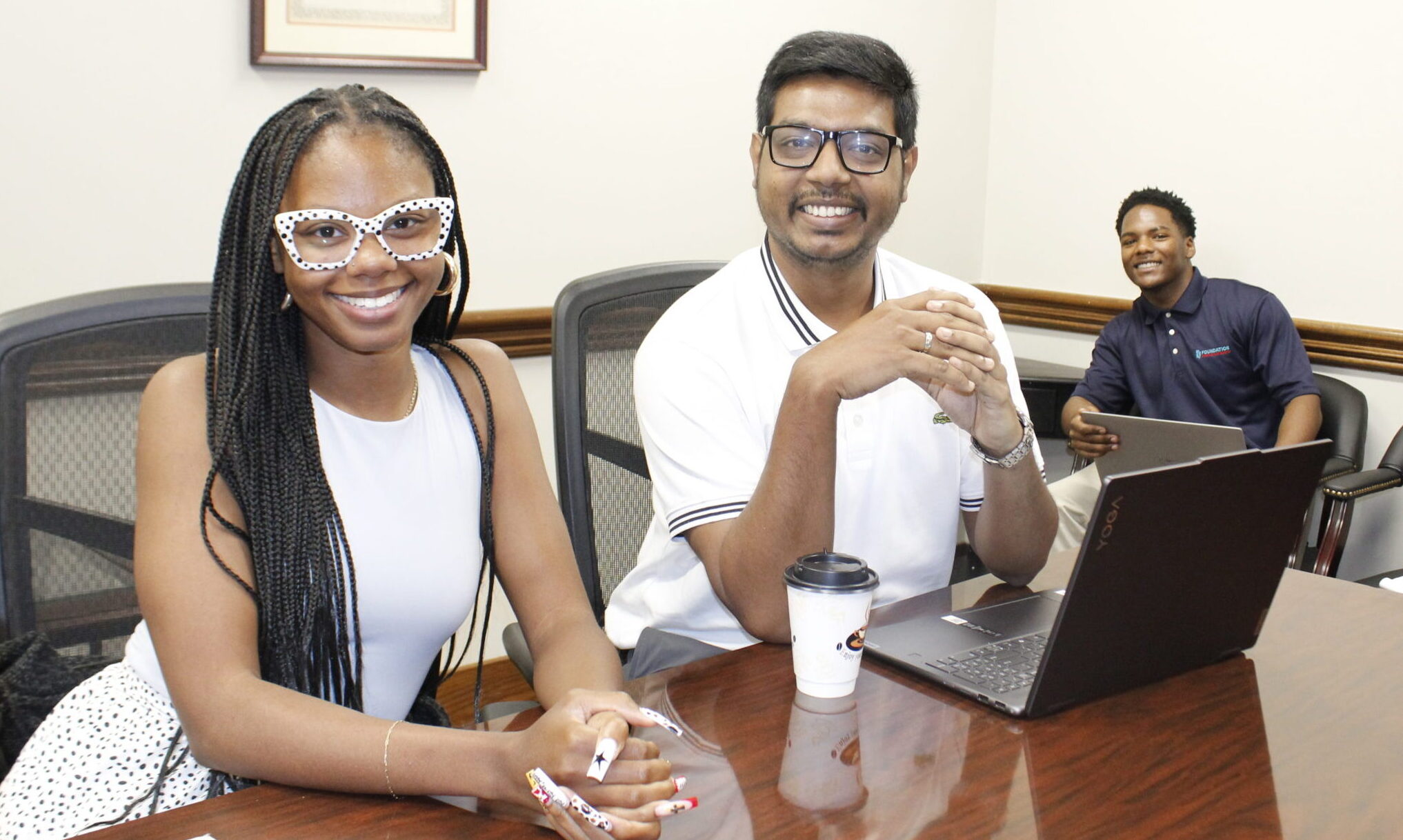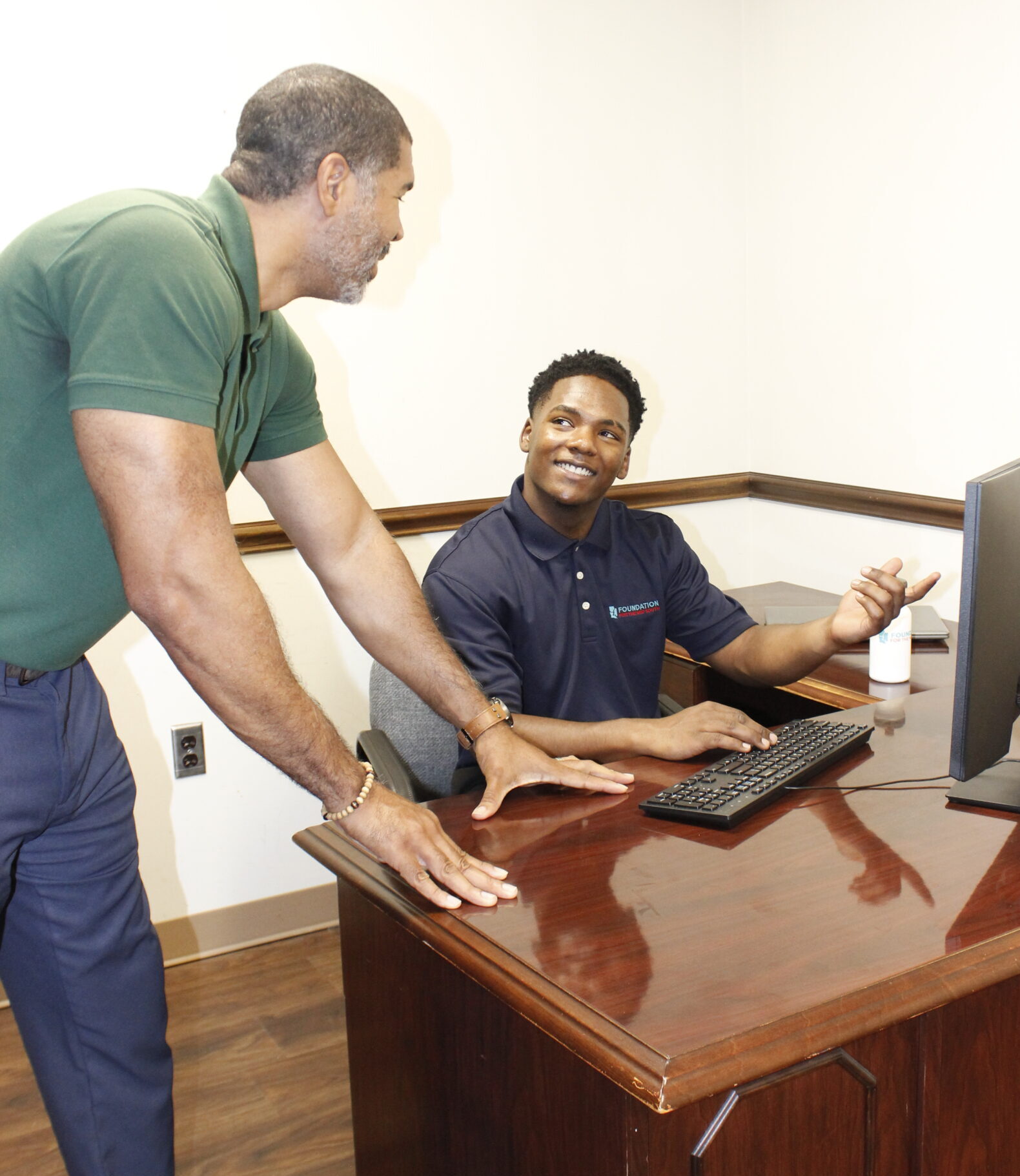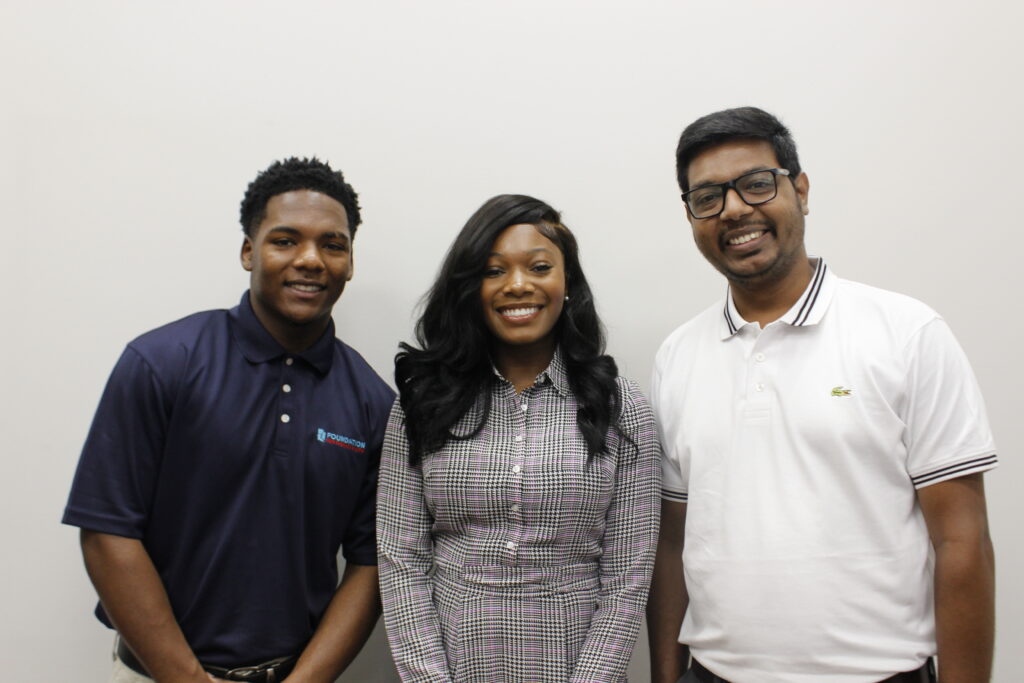Full Circle Futures Series – Post 3
By Ebonee Johnikin, Communications Director, Foundation for the Mid South
Welcome to Full Circle Futures, a blog series from the Foundation for the Mid South that celebrates the power of mentorship, growth, and investing in the next generation. In this final installment, we zoom out from individual stories to explore how the Foundation is building a culture that prepares young people not just to participate, but to lead.
Looking Ahead While Rooted in Purpose
The future doesn’t tap politely. It barges in, pulls up a chair, and gets to work. At the Foundation for the Mid South, you can see it in interns analyzing data sets, fellows drafting reports, or young professionals jumping headfirst into community meetings. The future isn’t some abstract ideal. It has names, faces, and ideas of its own, and it is already shaping the present.
Mentorship here isn’t a slogan to pin on the wall. It is part of the DNA. Whether through internships, fellowships, or those hallway conversations that turn into teachable moments, the aim is simple: pass the baton with intention and watch the next runner hit their stride.
Gregory Johnson, President and CEO of the Foundation, puts it this way:
“We don’t invest in young leaders to check a box. We do it because leadership development is central to how we build long-term capacity in the Mid South. The next generation won’t just inherit this work. They will rewrite the playbook.”
A Culture That Grows With You
That clarity shows up across programs. Cassio Batteast, Vice President of Programs, has seen firsthand how mentorship transforms both the organization and the people who pass through its doors.
“We’re not just handing out tasks, we’re handing out responsibility,” Batteast explained. “Our interns and fellows are producing real work products, from research reports to communications materials, that they can take with them into their careers. And in return, we gain their perspective, energy, and bold thinking. It’s not one-directional. It’s mutual growth.”

Intentionality is the watchword. Every intern receives a work plan on Day One, with weekly goals and tangible outcomes. That structure ensures they’re not just learning by osmosis but gaining hands-on, résumé-ready experience.
Batteeast shared one vivid example:
“This summer, I asked our communications intern to lead a meeting with a vendor, to lay out our needs and negotiate directly. He was nervous, but he rose to the challenge. That kind of real-world simulation builds confidence. You learn quickly that leadership isn’t just emails and phone calls. Sometimes it is about being face-to-face, answering tough questions, and adapting when things don’t go as planned. That’s the kind of experience that sticks.”
Lessons That Last
For George Stewart, Education Program Officer and former classroom teacher, mentorship carries echoes of the chalkboard and the bell schedule.
“My background in education helps me understand the need for strong leadership and support,” Stewart said. “Two of the top reasons teachers leave the profession are ineffective leadership and lack of support. That’s true beyond classrooms, too. Leadership development and support are critical to recruiting and retaining great people.”
Those lessons shape how he approaches his work at the Foundation.
“One of the most critical pieces to making sure a student succeeds is family engagement,” Stewart added. “But in today’s education system, the focus on testing often crowds that out. As a program officer, I have to identify ways to fill that gap through funding and support. The same goes for dropout prevention. We know signs can show as early as sixth grade. If we don’t invest in people early, we risk losing them.”
Stewart believes long-term investment isn’t just about skills. It’s about capacity. “You have to create space for young leaders to grow into the kind of changemakers who can influence systems and policies,” he said. “That’s the kind of investment that pays dividends for decades.”

Mentorship Today, Leadership Tomorrow
The Foundation’s approach is not about short-term opportunities. It isn’t just about filling summer slots or checking off a mentorship box. At the Foundation, the focus is on shaping people who will carry their communities forward long after their badge at FMS is turned in. Some are cranking out research, others are shadowing staff across departments, and still others are in the field learning what community work looks like up close. The common thread is simple and stubborn: pour into people, and the payoff keeps echoing long after.
Cassio Batteast doesn’t mince words about what that takes.
“You can bring in ten interns, but if you don’t have a plan or meaningful experiences for them, you’re doing them a disservice,” he said. “Intentionality matters. Every opportunity has to be designed to sharpen their skills and prepare them for what comes next.”
George Stewart added that real leadership development is about creating capacity, not just checking boxes.
“Long-term investment looks like creating a space for young leaders to grow into changemakers who can influence systems and policies,” he explained. “That kind of investment pays dividends for decades.”
Together, these perspectives shape a culture where mentorship is more than guidance–it is preparation, practice, and purpose rolled into one.
The Next Generation Starts Now
For Johnson, the future is urgent.
“Leadership isn’t optional. It’s essential,” he said. “If we’re serious about changing systems that have been in place for generations, we can’t wait for tomorrow’s leaders to show up ready-made. We have to prepare them today, to lead across difference, across disciplines, and across communities.”

That philosophy drives the Foundation’s culture. From interns drafting reports to staff with 15 years of experience, the expectation is the same: grow forward.
The Full Circle Futures series has underscored a simple truth. If the Mid South is going to change, truly change, it won’t just be because of grants, programs, or policies. It will be because of people. People who are prepared, supported, and trusted to lead.
And if the past few months are any indication, those people are already here.


